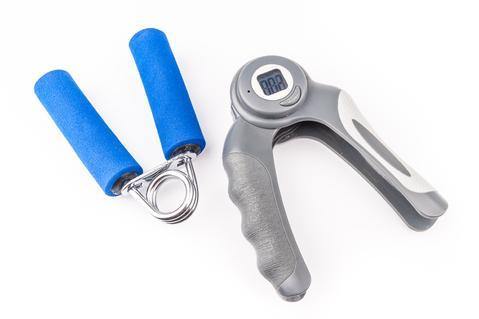
Staying on top of your health is important.
Many segments of our population are doing a good job, as older Americans are living longer due to advancements in medical care and preventative health strategies.
However, the quality of life for many of today's seniors requires a boost.
Elderly people who are disabled or who become injured usually require the help of occupational therapists to continue their independent, active lifestyles.
Let's take a closer look.
Helpful Occupational Therapy Equipment
These health care professionals assess elderly clients' daily movements, living environments and emotional behaviors to generate strategies that help their clients to lead more self-sufficient lives.
These strategies could include a series of rehabilitative exercises that support the use of fine motor skills or the implementation of special occupational therapy equipment that help seniors to perform daily self-care tasks.
Here are some examples of equipment and tools that occupational therapists might recommend to their clients.
Easy-Dressing Aids
Getting dressed is a basic task that many elderly people have trouble doing after an injury or a debilitating illness like arthritis.
In cases like these, occupational therapists prescribe innovative products like button aids and zipper pulls to their clients. Most button fastening tools for the disabled consist of a looped wire that is attached to a ergonomically shaped handle.
Disabled persons are able to easily hook buttons with the looped wire and thread them through even the snuggest of button holes. Another tool that simplifies dressing is the zipper pull. Zipper pulls are hooks that allow disabled persons to grasp zippers and pull them up or down.
Many disabled seniors need the help of their occupational therapists to help them to master various ways of using these items effectively.
Exercise Equipment for Physical and Mental Well-Being
Occupational therapists help people with both physical and mental disabilities to gain independence.
Most people understand the physical benefits that regular exercise brings, but getting the heart rate up also impacts brain function. Research reveals exercise is beneficial to people who suffer with dementia.
Elderly patients who have mild to moderate cases of dementia are encouraged to get about 150 minutes of exercise per week. Recommended activities include ones such as seated exercises, gardening and swimming.
Pedal exercisers allow clients to remain seated in traditional seats or wheel chairs while they move their leg muscles on stationary bike pedals. Most pedal exercisers come with tension adjustment mechanisms that provide a way for seniors to challenge their muscles as they get stronger.
Regular exercise such as pedaling helps to improve memory, mood and the physical dexterity that is needed to conduct daily living tasks according to leading health experts.
Tools for Food Preparation and Eating
Elderly persons who have extreme disabilities often need the help of home health care professionals who will prepare their food and help them to eat meals in their homes.
Today's occupational therapists apply integrative, rehabilitative techniques that help disabled seniors to grow, prepare and eat food on their own. For example, occupational therapists might prescribe exercise in the form of gardening to their patients.
A disabled client who has trouble gripping a spade or other planting or pruning tools could use a simple wrist cuff that attaches to the patient's favorite garden implement. The elderly person can also prepare and eat their garden bounty by attaching the same type of flexible, silicon wrist cuff to cooking utensils and flatware.
EazyHold offers a collection of comfortable silicone hand straps to assist those challenged by weakened hand grip, arthritis and other disabilities. Visit our blog to learn more, or connect with us on Facebook, Instagram, Pinterest, and Twitter to stay in touch.
© EazyHold

